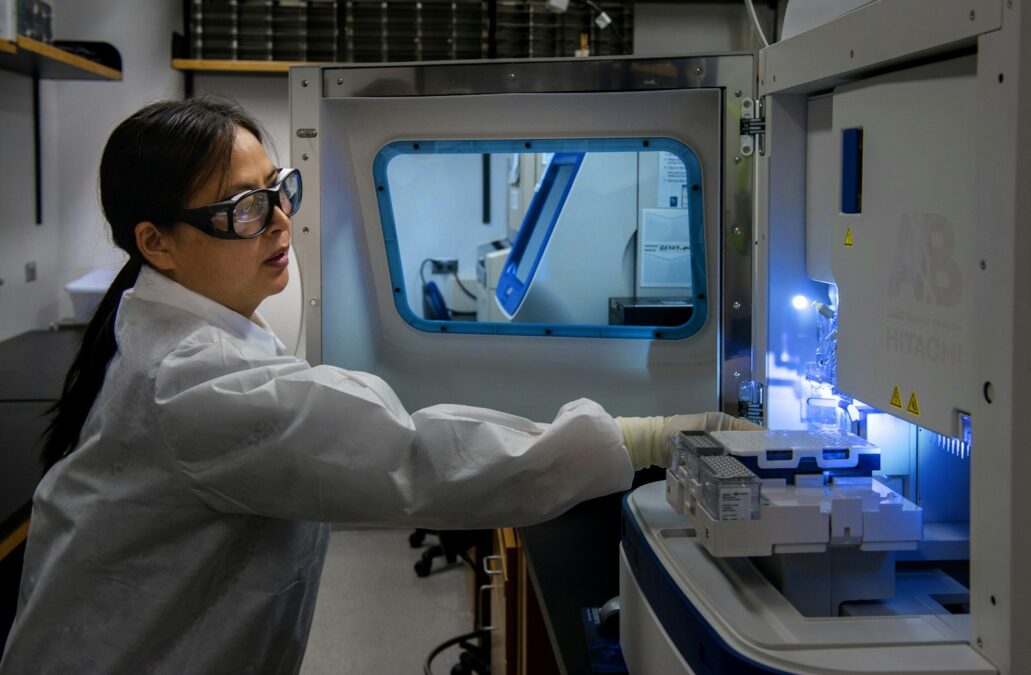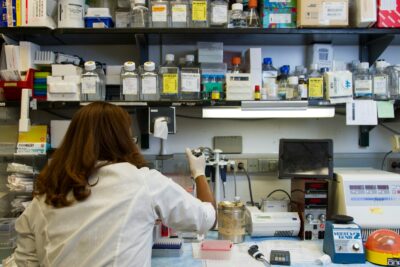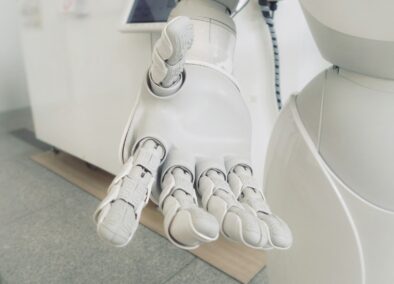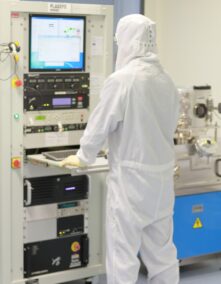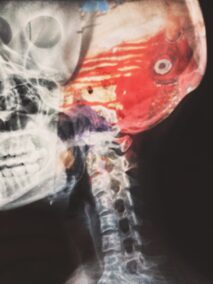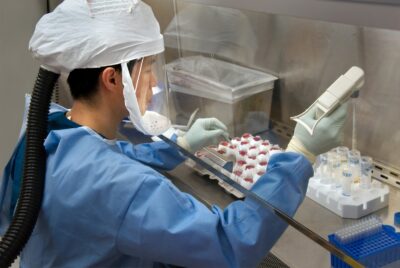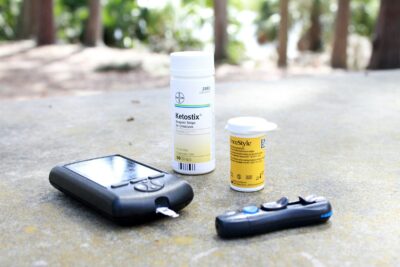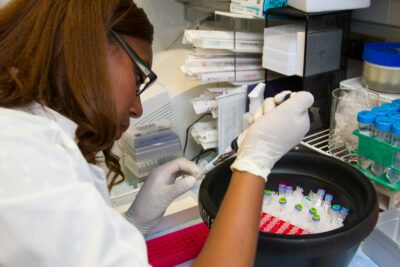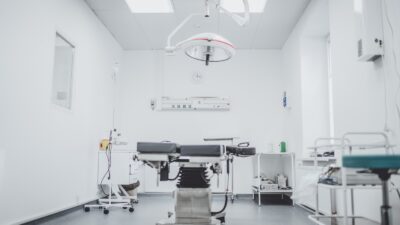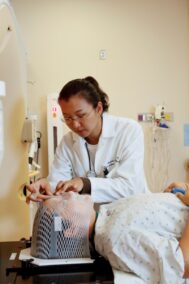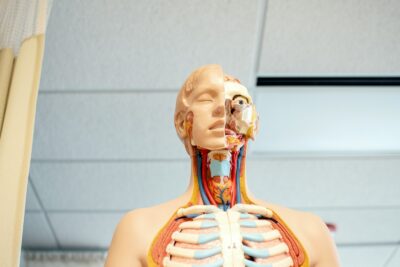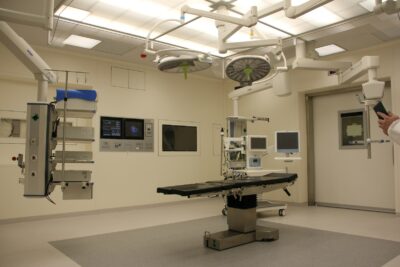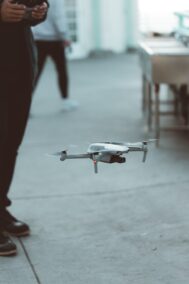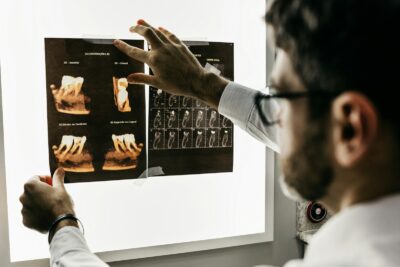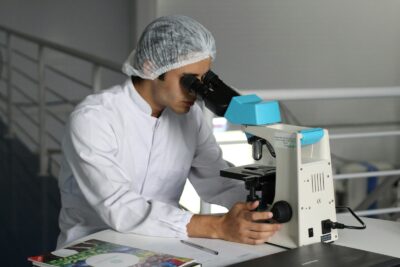Enhancing Diagnostic Accuracy with Smart Medical Devices
The Impact of Smart Medical Devices on Diagnostic Accuracy
In the rapidly evolving world of healthcare, smart medical devices in diagnostics have become game-changers. These devices leverage advanced technologies such as Artificial Intelligence (AI), Internet of Things (IoT), and machine learning to enhance the accuracy and efficiency of diagnostic procedures. For business executives, mid-level managers, and entrepreneurs in the healthcare sector of Saudi Arabia and the UAE, understanding the benefits and implementation of these innovations is crucial.
In Saudi Arabia, the adoption of smart medical devices is part of a broader vision to enhance healthcare services. The Ministry of Health is actively promoting the integration of AI and IoT in medical diagnostics to reduce diagnostic errors and improve patient outcomes. Similarly, in the UAE, the healthcare system is embracing these technologies to offer more precise and personalized care. By utilizing smart devices, healthcare providers can offer quicker and more accurate diagnoses, which is essential in critical and time-sensitive conditions.
These advancements are particularly significant in regions like Riyadh and Dubai, where healthcare infrastructure is rapidly developing. Hospitals and clinics equipped with smart diagnostic devices can perform real-time analysis and monitoring, leading to early detection of diseases and more effective treatment plans. This not only improves patient care but also reduces the overall cost of healthcare by preventing unnecessary treatments and hospitalizations.
Case Studies: Success Stories in Saudi Arabia and UAE
The implementation of smart medical devices in diagnostics has led to remarkable success stories in both Saudi Arabia and the UAE. For instance, the King Faisal Specialist Hospital in Riyadh has integrated AI-powered imaging systems that significantly enhance the detection of cancers at early stages. These systems analyze medical images with higher precision than traditional methods, enabling oncologists to design more effective treatment plans.
In Dubai, the Health Authority has introduced wearable devices that monitor patients’ vital signs in real-time. These devices use AI algorithms to predict potential health issues before they become critical, allowing for timely medical intervention. Such innovations not only save lives but also position Dubai as a leader in smart healthcare solutions.
Furthermore, partnerships between local healthcare institutions and global tech companies are fostering an ecosystem of continuous improvement and innovation. For example, collaborations with companies specializing in AI and machine learning are driving the development of even more sophisticated diagnostic tools. These tools are designed to integrate seamlessly with existing healthcare systems, ensuring that they can be widely adopted and utilized to their full potential.
Future Prospects: The Role of Smart Medical Devices in Precision Medicine
The future of smart medical devices in diagnostics looks promising, particularly in the context of precision medicine. Precision medicine aims to tailor medical treatment to the individual characteristics of each patient. By using smart devices, healthcare providers can gather detailed and accurate patient data, which is essential for developing personalized treatment plans.
In Saudi Arabia and the UAE, there is a growing emphasis on precision medicine as part of national healthcare strategies. Smart medical devices are pivotal in this transition, offering tools that can monitor patients continuously and provide data-driven insights. For instance, wearable devices that track glucose levels, heart rate, and other vital signs can help manage chronic conditions more effectively by providing real-time data to both patients and healthcare providers.
Additionally, the integration of blockchain technology with smart medical devices can enhance data security and patient privacy. Blockchain can create secure and immutable records of patient data, ensuring that sensitive information is protected while enabling easy access for authorized medical professionals. This is particularly important in regions like Riyadh and Dubai, where maintaining the highest standards of data security is crucial for gaining patient trust.
Executive Coaching and Leadership in Implementing Smart Medical Devices
Effective implementation of smart medical devices in diagnostics requires strong leadership and management skills. Executive coaching services can play a critical role in this regard, helping healthcare leaders in Saudi Arabia and the UAE navigate the complexities of adopting new technologies. By fostering a culture of innovation and continuous learning, executives can ensure that their organizations remain at the forefront of medical advancements.
Leadership in this context involves not only understanding the technical aspects of smart medical devices but also addressing the organizational and cultural changes required for their successful integration. This includes training healthcare professionals to use new devices effectively, managing patient expectations, and ensuring seamless integration with existing healthcare systems.
Management consulting firms specializing in healthcare can also provide valuable insights and strategies for adopting smart medical devices. These firms can conduct comprehensive assessments of current diagnostic processes and recommend tailored solutions that leverage the latest technological advancements. By partnering with experienced consultants, healthcare organizations can optimize their operations and improve patient outcomes.
Effective Communication: Key to Success in Smart Device Implementation
Communication is a cornerstone of successfully implementing smart medical devices in diagnostics. Clear and effective communication strategies are essential for ensuring that all stakeholders, including healthcare professionals, patients, and technology providers, are aligned and informed. This involves regular updates on the progress of implementation, training sessions for medical staff, and informative materials for patients.
In Saudi Arabia and the UAE, where cultural sensitivity is paramount, communication strategies must be tailored to resonate with diverse patient populations. This includes using multiple languages and culturally appropriate messaging to ensure that patients understand the benefits and usage of smart medical devices. By fostering open communication, healthcare providers can build trust and encourage patient engagement, which is crucial for the success of these innovations.
Moreover, effective communication extends to collaboration with international partners. By participating in global forums and networks, healthcare leaders in Riyadh and Dubai can stay updated on the latest trends and best practices in smart medical diagnostics. This global perspective can inform local strategies and help drive continuous improvement in healthcare services.
Conclusion: Embracing the Future of Healthcare with Smart Diagnostics
The integration of smart medical devices in diagnostics represents a significant leap forward in healthcare. For business executives, mid-level managers, and entrepreneurs in Saudi Arabia and the UAE, understanding and embracing these technologies is essential for staying competitive and delivering high-quality care. By leveraging advanced technologies such as AI, IoT, and blockchain, healthcare providers can enhance diagnostic accuracy, improve patient outcomes, and reduce costs.
As these innovations continue to evolve, the role of leadership, effective communication, and strategic partnerships will be critical. Through executive coaching and management consulting, healthcare leaders can navigate the complexities of implementing smart medical devices and drive their organizations towards a future of precision medicine and personalized care. By staying informed and proactive, Riyadh and Dubai can continue to lead the way in smart healthcare solutions, setting a benchmark for the rest of the world.
—
#smartmedicaldevices #diagnostics #healthcaretechnology #medicalinnovation #SaudiArabiahealthcare #UAEhealthcare #precisionmedicine #medicalAI

